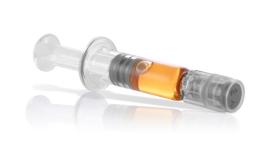Understanding Cannabinoids: Beyond THC and CBD
Cannabinoids are a diverse group of compounds that are found in the cannabis plant.
They have a wide range of effects on the body, including psychoactive effects, pain relief, and anti-inflammatory effects.
The two most well-known cannabinoids are THC (tetrahydrocannabinol) and CBD (cannabidiol). THC is the psychoactive compound in cannabis that produces the "high" feeling. CBD is non-psychoactive and has a variety of potential medical benefits.
In addition to THC and CBD, there are over 100 other cannabinoids that have been identified in the cannabis plant. Some of these cannabinoids, such as CBG (cannabigerol) and CBN (cannabinol), are also non-psychoactive. Others, such as THCV (tetrahydrocannabivarin) and CBC (cannabichromene), have psychoactive effects that are different from THC.
The different types of cannabinoids can be classified into three main categories:
-
Phytocannabinoids: These are cannabinoids that are naturally produced by the cannabis plant.
-
Endocannabinoids: These are cannabinoids that are produced by the human body.
-
Synthetic cannabinoids: These are cannabinoids that are created in a laboratory.
Cannabinoids work by binding to cannabinoid receptors in the body. There are two main types of cannabinoid receptors: CB1 receptors and CB2 receptors. CB1 receptors are found in the brain and central nervous system. CB2 receptors are found in the immune system and other tissues throughout the body.
The different cannabinoids have different affinities for these receptors. THC has a high affinity for CB1 receptors, which is why it produces psychoactive effects. CBD has a low affinity for CB1 receptors, but it has a high affinity for CB2 receptors. This is why CBD has anti-inflammatory and pain-relieving effects.
The effects of cannabinoids can vary depending on the type of cannabinoid, the dose, and the individual's body chemistry. Some of the potential benefits of cannabinoids may include:
-
Pain relief
-
Anti-inflammatory effects
-
Anti-anxiety effects
-
Anti-psychotic effects
-
Epilepsy treatment
-
Cancer treatment
Cannabinoids are still being studied, and more research is needed to understand their full potential. However, the research that has been done so far suggests that cannabinoids have a wide range of potential medical benefits.
Top 5 Cannabinoids
In addition to THC and CBD, here are the top 5 cannabinoids:
-
CBG (cannabigerol): CBG is a non-psychoactive cannabinoid that has been shown to have anti-inflammatory, anti-cancer, and neuroprotective effects.
-
CBN (cannabinol): CBN is a non-psychoactive cannabinoid that is a byproduct of the degradation of THC. It has been shown to have sedative and anti-convulsant effects.
-
CBC (cannabichromene): CBC is a non-psychoactive cannabinoid that has been shown to have anti-inflammatory, anti-cancer, and neuroprotective effects.
-
THCV (tetrahydrocannabivarin): THCV is a psychoactive cannabinoid that has a different effect than THC. It has been shown to reduce appetite and increase energy levels.
-
CBDA (cannabidiolic acid): CBDA is the acidic form of CBD. It has anti-inflammatory and pain-relieving effects.
Conclusion
Cannabinoids are a complex and fascinating group of compounds. They have a wide range of potential medical benefits, and they are still being studied to learn more about their full potential.
Health Disclaimer: The information provided in this article is for educational purposes only and should not be taken as medical advice. Always consult with a qualified healthcare provider before using cannabis, particularly if you have pre-existing conditions or are taking medication.






















